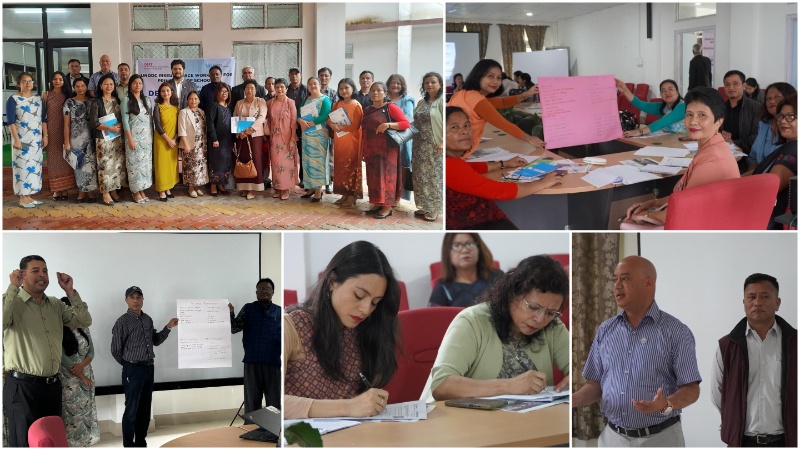India: UNODC, DERT Meghalaya empower Shillong educators to foster learning on inclusion, ethics and peace in classrooms
Shillong, Meghalaya/13 August 2024: In today's rapidly evolving world, educators are on the front lines of addressing a range of challenges faced by students. Amid the rise of digital media, students are increasingly exposed to negative influences such as cyberbullying, substance abuse, and mental health issues.
In intensive discussions, principals and educators from 22 schools in Shillong highlighted these as critical challenges young people face at a specialised RiseUp4Peace capacity boosting initiative convened by the Directorate of Educational Research and Training (DERT) Meghalaya and UNODC. “A learning for me has been that we must be proactive in creating and providing a safe space for students to openly discuss their problems and receive guidance,” noted a participant. Discussions focused on addressing emerging student vulnerabilities and empowering young people to resist negative influences and risky behaviours through education.
“To support our students effectively, we must address their emotional and psychological needs as well as their academic growth. It’s essential that we equip our educators with innovative tools and strategies to address these issues effectively, ensuring that our schools are places where students feel safe and supported," said Ms. RS Manners, Director of DERT Meghalaya, highlighting the need for an evolved educational approach.
Ideating in groups, educators shared a range of school-focused replicable good practices, such as a buddy program to identify risky behaviours, student clubs on reducing digital footprint and increased sensitization initiatives on mental health and cybersecurity.
“We discussed real-life scenarios and developed actionable strategies,” Mr. Paul, an educator said. “This has given me new insights into how I can create a more supportive environment for my students.”
The focus on good practices and policy linkages with the National Education Policy (NEP) 2020 provided a framework for integrating these critical themes into everyday educational practices.
“This workshop has been transformative,” Ms. Laila, an educator, added. “This is not just about adding to our curriculum; it’s about fundamentally changing how we approach these critical issues. It’s a need of the hour.”
Dr. Satya Bhushan from NCERT highlighted the importance of aligning educational practices with national policies. “The NEP 2020 emphasizes holistic development and the need for educational institutions to address the well-being of students. Through RiseUp4Peace, educators are being equipped with the knowledge to take such interventions to the classrooms.”
UNODC’s Mr. Samarth Pathak echoed this sentiment, emphasizing the role of educators in shaping a safer and more just environment for students. “To effectively address the evolving needs of students, we must look beyond isolated events and invest in ongoing programs that provide continuous support to educators.”
With the RiseUp4Peace initiative, UNODC is working with educators to take these transformative strategies into their classrooms through sustained capacity building of educators, interactive students’ engagement and fostering cross-learning.
Join the RiseUp4Peace initiative: t.ly/SjWRq
The activity contributed to SDG 4, SDG 5, SDG 16 and SDG 17: https://sdg-tracker.org/
